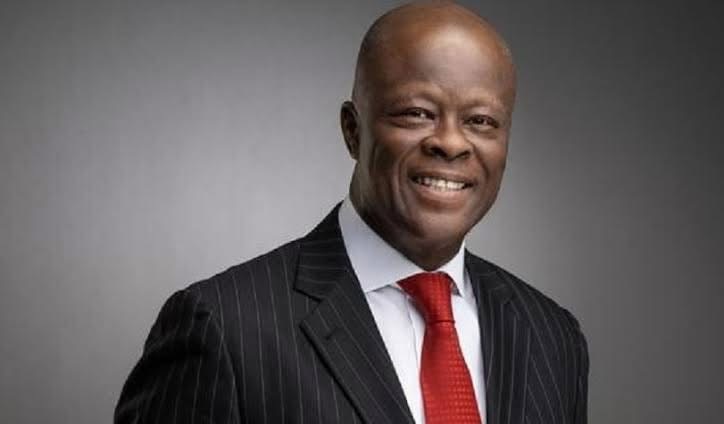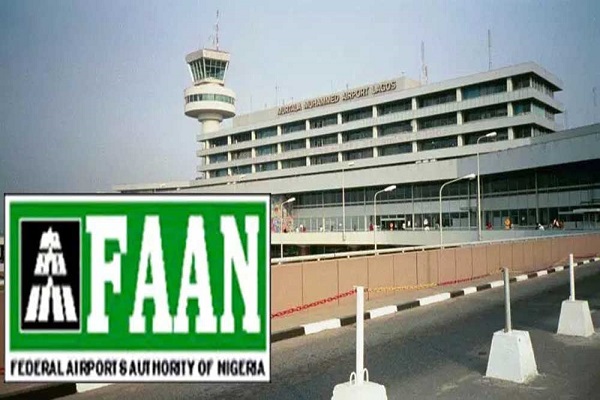News
Israeli planes bomb southern Lebanon after radio blasts
Published
7 months agoon
By
Ekwutos BlogBy Walid Saleh and James Mackenzie
BEIRUT/JERUSALEM (Reuters) -Israel bombed southern Lebanon on Thursday and said it had thwarted an Iranian-led assassination plot, a day after explosions of Hezbollah radios that came on the heels of blasts in booby trapped pagers, setting the foes hurtling towards war.
The sophisticated attacks on armed group Hezbollah’s communications equipment, which killed 37 people and wounded around 3,000 over two days, sowed disarray in Lebanon, with panicked residents abandoning their mobile phones.
“This isn’t a small matter, it’s war. Who can even secure their phone now? When I heard about what happened yesterday, I left my phone on my motorcycle and walked away,” said Mustafa Sibal on a street near central Beirut.
A distant roar in the skies could be heard in Beirut from what Lebanese state media said was Israeli jets breaking the sound barrier – a sound that has grown increasingly common in recent months.
Israel said its warplanes struck villages in southern Lebanon overnight, and a security source and Hezbollah’s al-Manar TV reported airstrikes near the border resumed on Thursday just after midday.
Hand-held radios used by Hezbollah detonated on Wednesday across Lebanon’s south. The Lebanese health minister raised the death toll, saying 25 people had been killed and 608 injured in the country’s deadliest day since cross-border fighting erupted between the militants and Israel in parallel with the Gaza war last year.
The previous day, hundreds of pagers – used by Hezbollah to evade mobile phone surveillance – exploded at once, killing 12 people including two children, and injuring more than 2,300.
In a post on X, Lebanese Prime Minister Najib Mikati called on the United Nations Security Council to take a firm stand to stop Israel’s “aggression” and “technological war” against his country.
Israel has not commented directly on the booby-trapped walkie-talkies and pagers, but multiple security sources have said the attacks were carried out by its spy agency Mossad.
Israel says its conflict with Hezbollah, like its war in Gaza against Palestinian militant group Hamas, is part of a wider regional confrontation with Iran, which sponsors both groups as well as armed movements in Syria, Yemen and Iraq.
On Thursday Israeli security forces announced that an Israeli businessman had been arrested last month after attending at least two meetings in Iran, where he discussed assassinating Prime Minister Benjamin Netanyahu, the defence minister or the head of the Shin Bet spy agency.
Last week, Shin Bet uncovered what it said was a plot by Hezbollah to assassinate former Defence Minister Moshe Ya’alon.
Israel has been accused of assassinations including a blast in Tehran that killed the leader of Hamas and another in a Beirut suburb that killed a senior Hezbollah commander within hours of each other in July.
Despite the events of the past few days, a spokesperson for the U.N. peacekeeping mission in southern Lebanon said the situation along the frontier had “not changed much in terms of exchanges of fire between the parties”.
“There was an intensification last week. This week it is more or less the same. There are still exchanges of fire. It is still worrying, still concerning, and the rhetoric is high,” the spokesperson, Andrea Tenenti, told Reuters.
Israel and Hezbollah have been exchanging fire across the Israeli-Lebanon border in parallel with the war Israel has waged in Gaza against Hamas, the Palestinian militant group whose fighters attacked Israel on Oct. 7.
Tens of thousands of people have had to flee the Israel-Lebanon border area on both sides. Netanyahu vowed on Wednesday to return the evacuated Israelis “securely to their homes”.
SHIFTING FOCUS
The Israeli military said its overnight air strikes hit Hezbollah targets in Chihine, Tayibe, Blida, Meiss El Jabal, Aitaroun and Kfarkela in southern Lebanon, as well as a Hezbollah weapons storage facility in the area of Khiam.
Israeli media reported that a number of Israeli civilians had been wounded by anti-tank missile fire from Lebanon, but there was no official confirmation.
On Wednesday, Israeli Defence Minister Yoav Gallant said the war was moving into a new phase, with more resources and military units now being shifted to the northern border.
According to Israeli officials, the forces being deployed there include the 98th Division, an elite formation including commando and paratroop elements that has been fighting in Gaza.
Hezbollah launched missile barrages on Israel on the day after the Oct. 7 attack by Hamas, and since then there has been a constant exchange of fire that neither side has allowed to escalate into a full-scale war.
However, tens of thousands have been evacuated on both sides of the border, and there has been mounting pressure in Israel for the government to get the evacuees back home.
(Additional reporting by Tom Perry and Walid Saleh in BeirutWriting by Michael GeorgyEditing by Peter Graff)
You may like


BREAKING: Rivers State Sole Administrator Vice Admiral Ibot-Eke Ibas Rtd Appoints Local Government Sole administrators And Reconstituted RISIEC Board.


Gov Soludo welcomes Ifeanyi Ubah’s supporters into APGA, promises to immortalize Late Senator.


Daddy Freeze reacts as Femi Fani-Kayode lays hands on people in Church


‘Rare breed of businessman’- Tinubu mourns ex-MTN Nigeria chairman, Pascal Dozie


Trump mulls fining immigrants $998 for flouting deportation order


Champions League quarter-final: Arsenal thrash Real Madrid as Inter beat Bayern
News
‘Rare breed of businessman’- Tinubu mourns ex-MTN Nigeria chairman, Pascal Dozie
Published
2 hours agoon
April 9, 2025By
Ekwutos Blog
President Bola Tinubu has expressed sadness over the death of iconic business man, founder of the defunct Diamond Bank and pioneer Chairman of MTN Nigeria, Pascal Dozie.
A presidential spokesperson, Bayo Onanuga disclosed this in a statement on Tuesday.
Dozie died at age of 85 in the early hours of Tuesday.
Tinubu described Dozie as “a rare breed business leader whose wisdom, humility, and pioneering efforts laid a foundation upon which many continue to build”.
“His passing is a profound loss to the private sector and Nigeria,” Tinubu added.
The President prayed for the peaceful repose of Dozie’s soul and extended his condolences to his wife, children and extended family.
He urged the Nigerian private sector to honour Pascal Dozie’s memory by upholding the values of integrity, innovation, and nation-building, for which he was renowned.
News
US tariffs won’t have much effect on Nigeria – FG
Published
18 hours agoon
April 8, 2025By
Ekwutos Blog
Nigeria’s Minister of Finance and Coordinating Minister of the Economy, Wale Edun, has stated that the recent 14 percent tariff imposed by the United States on Nigerian exports will have minimal impact on the Nigerian economy.
Edun made these comments during the inaugural Corporate Governance Forum organized by the Ministry of Finance Incorporated in Abuja on Monday. While acknowledging the seriousness of rising global tariff disputes, Edun emphasized that Nigeria remains largely shielded from significant effects, given that oil and mineral exports—Nigeria’s major exports to the U.S.—are exempt from the new tariffs.
He pointed out that the 14 percent tariff is relatively moderate compared to the 46 percent tariff imposed on Vietnam and the 34 percent on China. “Nigeria’s exports to the U.S. were N1.8 trillion, N2.6 trillion, and N5.5 trillion in 2022-2024, respectively. Fortunately, oil and mineral exports made up 92 percent, amounting to N5.08 trillion, while non-oil exports were only N0.44 trillion. Therefore, the impact of the tariff on exports is minimal if we maintain our oil and mineral export volumes,” Edun explained.
Despite his optimism, Edun acknowledged that the government’s economic management team is closely monitoring the evolving global situation. “We are revisiting the budget to examine the changes in assumptions that were used in its creation, considering the realities of the first quarter and future projections,” he added.
The 14 percent tariff imposed by U.S. President Donald Trump on Nigerian exports poses a significant risk to Nigeria’s $10 billion annual exports to the U.S., particularly threatening key sectors like agriculture, with experts and trade associations expressing concerns over the possibility of a global trade war.
According to the National Bureau of Statistics, Nigeria’s trade with the U.S. reached a total of N31.1 trillion between 2015 and 2024. A breakdown of the foreign trade report reveals that N16.4 trillion was recorded as exports, while imports amounted to N14.71 trillion, resulting in a trade surplus of N1.64 trillion.
The data showed that Nigeria’s exports to the U.S. were valued at N344.27 billion in 2015, N1.03 trillion in 2016, and N1.73 trillion in 2017. Exports continued to rise, reaching N1.82 trillion in 2022, N2.61 trillion in 2023, and N5.52 trillion in 2024. However, there was a notable dip in 2020, with exports falling to N382.19 billion due to the pandemic.
Earlier, the Federal Government acknowledged that several of Nigeria’s oil and non-oil exports would face challenges as a result of the new U.S. tariffs. The tariff could potentially undermine the competitiveness of Nigerian products in the U.S. market, a concern raised by the Minister of Industry, Trade and Investment, Dr. Jumoke Oduwole, in a statement on Sunday.
News
FAAN ends physical luggage checks at Lagos Airport
Published
2 days agoon
April 7, 2025By
Ekwutos Blog
…deploys advanced scanners for international flights
The Federal Airports Authority of Nigeria (FAAN) has announced a major upgrade in passenger facilitation for international flights by phasing out physical luggage screening at both the old and new terminals of the Murtala Muhammed International Airport (MMIA), Lagos.
This move follows the installation of state-of-the-art Rapiscan screening machines and surveillance systems at key checkpoints within the terminals. The new technology is designed to streamline security processes and reduce the time spent during pre-flight check-ins.
According to checks by The Nation, FAAN has already installed four high-capacity screening machines at the MMIA capable of detecting illicit drugs, concealed currency, and other prohibited items. Physical searches will now only occur when suspicious items are flagged by the Rapiscan systems.
To support this enhanced security architecture, surveillance monitors are being mounted for use by border control agencies such as the Nigeria Immigration Service, Nigeria Customs Service, NDLEA, and the National Agricultural Quarantine Service.
These will all be linked to a central control system to monitor operations and ensure accountability, with personnel identities displayed for transparency.
Officials confirmed that the long-standing manual search table at the terminal entrance will be dismantled this week, significantly easing the passenger flow process.
The Orion 928DX, the newly deployed scanning technology, is regarded as one of the most advanced systems in global aviation and forms part of a broader effort by FAAN to modernize Nigeria’s airport security with e-gates and enhanced inter-agency collaboration.
The sophisticated equipment, investigations reveal, combines artificial intelligence with real-time threat detection capabilities and is already redefining the way baggage is screened at the country’s busiest airport.
Fitted with crystal-clear digital displays, the machines -Orion 928DX boasts a range of smart features designed to detect narcotics, explosives, organic materials, and undeclared currency with astonishing accuracy.
Speaking in an interview, FAAN’s Head of ICT at the Lagos International Airport , Juliet Chima – Ogechukwu , said its personnel have been trained on the use of the new facilities , which will go a long way to boost safety and security at the terminal.
She said: “As luggage passes through the machine, it performs real-time scanning, quickly flagging suspicious content and highlighting it clearly on screen.
The system shows you exactly where the threat is located. With narcotics and explosives, it instantly detects, targets, and provides a clear image using its Narscan technology.
“Unlike earlier systems that could detect one threat at a time, the Orion 928DX handles simultaneous scans, detecting both explosives and narcotics in real time.
“Its integrated algorithm also allows it to adapt and absorb future upgrades, a feature many older systems lack. “This machine can evolve with new technologies. It’s designed to grow.
“The system also includes a dual-mode auto-set feature for detecting organic substances, such as agricultural products, often concealed in luggage.
It identifies them through two scanning modes, range and interactive, enabling security personnel to isolate specific pixels and trace their origins within the bag.
“It even goes a step further by detecting currency when travelers carry more than permitted. “It won’t tell you it’s naira, but it will highlight the excess. You then investigate and confirm the currency type.”
She affirmed that after the installation of the new machines, many aviation security personnel have been trained on both users and technical support programmes facilitated by the equipment manufacturer in the United Kingdom.
She said: “Now we continue training and retraining our teams to ensure optimal performance. MMA currently operates six Orion 928DX machines and four Orion 927DX systems, with plans to receive four more units in the coming weeks.
“The upgrade is also ongoing at other international airports across the country, including Nnamdi Azikiwe International Airport in Abuja.
With the new machines in place, MMA is rethinking the need for manual baggage checks altogether.
“With this technology, we really don’t need to stand by a table and start opening bags. Once the system identifies a suspicious item, it gives us an exact image and location. Then, if necessary, we proceed to a secondary search, quickly and efficiently.”
She said plans are underway to set up a private screening cubicle beside the scanning area for more discreet checks, with additional monitors installed to allow other security agencies real-time access to flagged visuals.
“Let me put it this way, with this machine, we can dismantle the old manual search tables. That’s exactly what we’re looking at.”
Also speaking, FAAN’s Director of Aviation Security Services, Albert Igbafe Afegbai said collaboration is being strengthened among security agencies to achieve the new operational architecture.
According to him, the ongoing test run of the newly introduced e-gates at the Lagos International Airport will reshape passengers’ experience.
“We are trying to eliminate physical contact and unnecessary interference during travel. With this new e-gate system, passengers only need to scan their boarding passes to pass through. Without a valid pass, access is denied — and that significantly reduces touting and prevents unauthorized access,” Afegbai.
To further enhance security operations, FAAN he said has also installed a new set of high-performance baggage screening machines designed to detect narcotics, undeclared currencies, and other contraband.
Afegbai disclosed that prior to these installations, existing equipment fell short in detecting certain prohibited items. With the acquisition of modern machines, FAAN is also facilitating capacity building across various agencies including the NDLEA, DSS, Immigration, Quarantine and Customs.
“We are now installing multiple monitors on each screening machine, so every agency has access to a dedicated screen.”

BREAKING: Rivers State Sole Administrator Vice Admiral Ibot-Eke Ibas Rtd Appoints Local Government Sole administrators And Reconstituted RISIEC Board.

Gov Soludo welcomes Ifeanyi Ubah’s supporters into APGA, promises to immortalize Late Senator.

Daddy Freeze reacts as Femi Fani-Kayode lays hands on people in Church
Trending

 Trending6 months ago
Trending6 months agoNYA demands release of ‘abducted’ Imo chairman, preaches good governance
- Business6 months ago
US court acquits Air Peace boss, slams Mayfield $4000 fine

 Politics6 months ago
Politics6 months agoMexico’s new president causes concern just weeks before the US elections
- Entertainment6 months ago
Bobrisky transferred from Immigration to FCID, spends night behind bars
- Entertainment6 months ago
Bobrisky falls ill in police custody, rushed to hospital

 Politics6 months ago
Politics6 months agoRussia bans imports of agro-products from Kazakhstan after refusal to join BRICS

 Politics6 months ago
Politics6 months agoPutin invites 20 world leaders
- Politics1 year ago
Nigerian Senate passes Bill seeking the establishment of the South East Development Commission.

